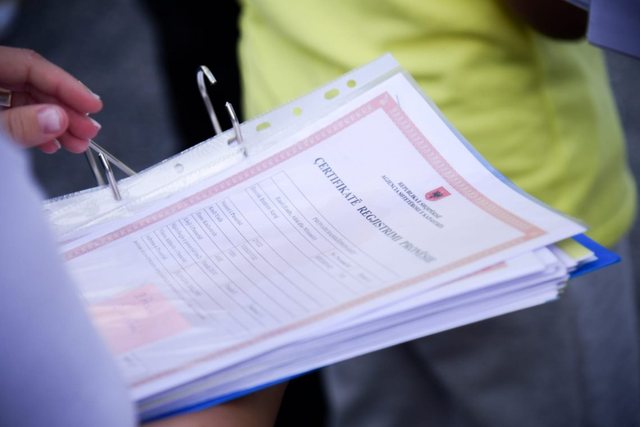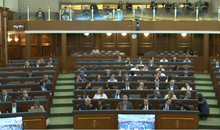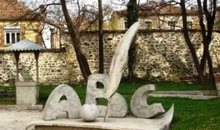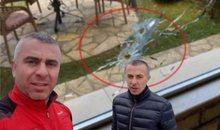

The report published on the official website of the Parliament notes that in most cases, the Cadastre ignored the measures and recommendations left for violations of the law, mainly in the legalization processes, while its senior leaders refused the Parliament's call to account before the special subcommittee, established a year ago with the aim of overseeing the implementation of the recommendations left by the Supreme Audit Office for public institutions.
"Although the Subcommittee had requested the participation of senior managers of the audited entities, including the Director General of the State Cadastre Agency, this request was not respected," the report states, considering it a "lack of seriousness towards the Assembly and the accountability process."
The report approved by the subcommittee and published on Thursday by the Assembly reviews compliance audits for 5 local directorates of the State Cadastre Agency: Tirana Rural 1, Tirana Rural 2, Durrës, Fier and Pogradec.
The SAI has addressed a number of 263 recommendations to the 5 directorates, of which only 36 recommendations or 13.7 percent of the total have been implemented.
The report, approved and published by the Assembly on Thursday, concludes that the Cadastre’s performance is “below the expectations of an efficient and accountable administration.” “The lack of timely reporting, the low level of implementation and the lack of institutional cooperation constitute clear indicators of the need for immediate improvement in the management of the Cadastre’s activities at the local and central levels,” the report states.
The audits have identified a number of shortcomings and structural problems such as: Violations of the legal framework in legalization processes, identifying cases of granting permits outside the legal deadline, for objects in prohibited areas (national roads, archaeological areas, public objects), or with incomplete documentation or for objects built with temporary materials or on public property (state land, canals, agricultural land under administration).
Likewise, the SAI has found abuses and mismanagement in the use of public property, including: non-payment of construction plot obligations in over 249 cases in the Pogradec DVASHK alone (value over 140 million lek), unfair gain of public property through AMTP or unjustified privatizations, discrepancies in cadastral entries and lack of documentation of the origin of the property.
In the work of the Cadastre, significant shortcomings have also been identified in the administration of documentation and archives, noting incomplete files for legalization practices; lack of minutes, signatures and official verifications, failure to comply with legal deadlines and procedural standards, as well as a lack of mechanisms for following up on complaints and transparency.
"Major concerns were raised regarding the issue of AMTP registration and legalization, including citizen confusion, lack of official responses, delays in procedures, and the use of standard response forms that do not provide effective solutions," the report of the parliamentary ad-hoc subcommittee states.
The ad-hoc parliamentary subcommittee on “Public Sector Audit” was established after debates about the political control of the majority over the work of an independent institution like the SAI, but in the final structure its leadership was left to the opposition. The work of this subcommittee also includes the audit of the SAI’s finances by independent auditors approved by the Assembly. Reporter.al
Latest news


Khamenei names potential successors if he is killed
2025-06-21 15:10:58


Memli Krasniqi re-elected as PDK chairman
2025-06-21 14:29:12



Israel says it has eliminated another top Iranian commander
2025-06-21 12:43:26

Iran and Israel exchange new attacks, Tehran rejects talks with the US
2025-06-21 12:00:20

The impasse continues, the constitution of the Assembly fails for the 35th time
2025-06-21 11:14:23

Report: Cadastre ignores Parliament and ALSAI recommendations
2025-06-21 10:35:59
Car loses control on Tepelena-Kelcyrë road, driver injured
2025-06-21 10:14:47

It failed 34 times, today a new attempt to constitute the Kosovo Assembly
2025-06-21 09:37:02
Foreign exchange, June 21, 2025
2025-06-21 09:17:10


With temperatures up to 35 degrees, check out today's weather forecast
2025-06-21 08:15:54
Morning Post/ In 2 lines: What mattered yesterday in Albania
2025-06-21 07:58:20


Dance with the mask of evil
2025-06-20 21:11:50
Matura 2025, Albanian Language and Literature exam grades published
2025-06-20 20:40:37
Tabaku: Albania has African wages and European prices
2025-06-20 20:33:02


UK temporarily withdraws embassy staff from Iran
2025-06-20 19:16:02
How Albania became the country with the highest cost of living
2025-06-20 18:49:11


Hail and strong storm "grab" Belshi
2025-06-20 17:35:56

School closures increase parents' financial burden during the summer
2025-06-20 16:49:19
KAS dismisses SP over vote revaluation
2025-06-20 16:34:02



Albanian language included in official communications of New York public schools
2025-06-20 15:08:35
Accident in Italy, 46-year-old Albanian dies (NAME)
2025-06-20 14:50:50
Kosovo in electricity crisis, KESCO appeals to citizens: Save electricity!
2025-06-20 14:29:55
Meta: Disinformation against me, a product of government propaganda!
2025-06-20 14:08:44
The American obsessed with Albania, a country he would write an anthem for
2025-06-20 13:39:41
Berisha: SPAK is throwing candy to protect Gys Agas and Rama!
2025-06-20 13:30:02
"Elections an electoral crime"/ Berisha warns of protests at home and abroad
2025-06-20 13:09:59


Reported missing a day ago, elderly man found dead in Peqin
2025-06-20 12:19:21
Drug gangs in Tirana cracked down, 24 arrested, 8 wanted (NAMES)
2025-06-20 11:57:38


You win the elections like Edi Rama - but justice won't allow you in Switzerland
2025-06-20 11:10:28
Bullets fired at Arjan Ndoji's former driver's bar, 15 shells at the scene
2025-06-20 10:48:02
Vokshi reports Vilma Nushi to SPAK, files lawsuit for "Check Up"
2025-06-20 10:31:54
Requests release from prison, hearing for former president Meta ends today
2025-06-20 10:15:50

Bullets fired at a bar in Fushë Krujë, police surround the area
2025-06-20 09:34:34



Foreign exchange, how much foreign currencies are bought and sold today
2025-06-20 08:40:20

Clear skies and cloudy skies, today's weather forecast
2025-06-20 08:00:26
Morning Post/ In 2 lines: What mattered yesterday in Albania
2025-06-20 07:50:05
Noka reveals Rama's condition for Veliaj to resign
2025-06-19 22:53:43
Vote recount in Tirana, Kaso: We did not have the 14th mandate as our objective
2025-06-19 22:44:53




Noka: Policemen were running from morning to night for SP votes
2025-06-19 21:31:03
The three zodiac signs that will be disappointed in love this month
2025-06-19 21:18:48
Accused of murder due to blood feud, 48-year-old arrested in England
2025-06-19 21:06:57
Vasili releases video: Tirana-Kashar segment full of gravel, no workers around!
2025-06-19 21:00:48

Tirana without a coach, four names considered for the white-and-blue bench
2025-06-19 20:21:12

Rinderpest/ A new outbreak appears in Shkodra, 200 sheep affected
2025-06-19 20:01:50

Scientists raise the alarm: Earth risks exceeding the 1.5°C warming limit!
2025-06-19 19:37:44

"Fiscal Peace" without consultation with the EU, Brussels concerned
2025-06-19 19:05:23
Trump signs executive order extending TikTok ban in US for another three months
2025-06-19 19:03:35

A special Task Force on immigration is established in cooperation with Italy
2025-06-19 18:23:58
Drug trafficking gang busted in Italy, 25 people arrested, including Albanians
2025-06-19 18:18:33
AMF denounces a suspicious cryptocurrency investment platform
2025-06-19 18:06:07


Technology as a tool of war between Israel and Iran
2025-06-19 17:27:54




EU divided over Israel's right to bomb Iran
2025-06-19 16:10:42

